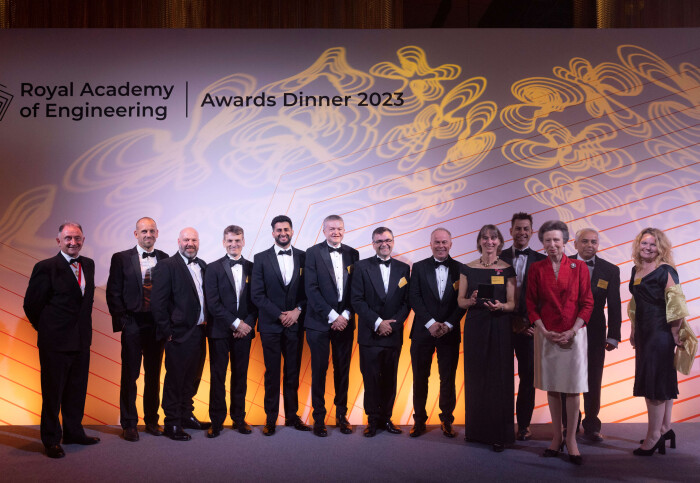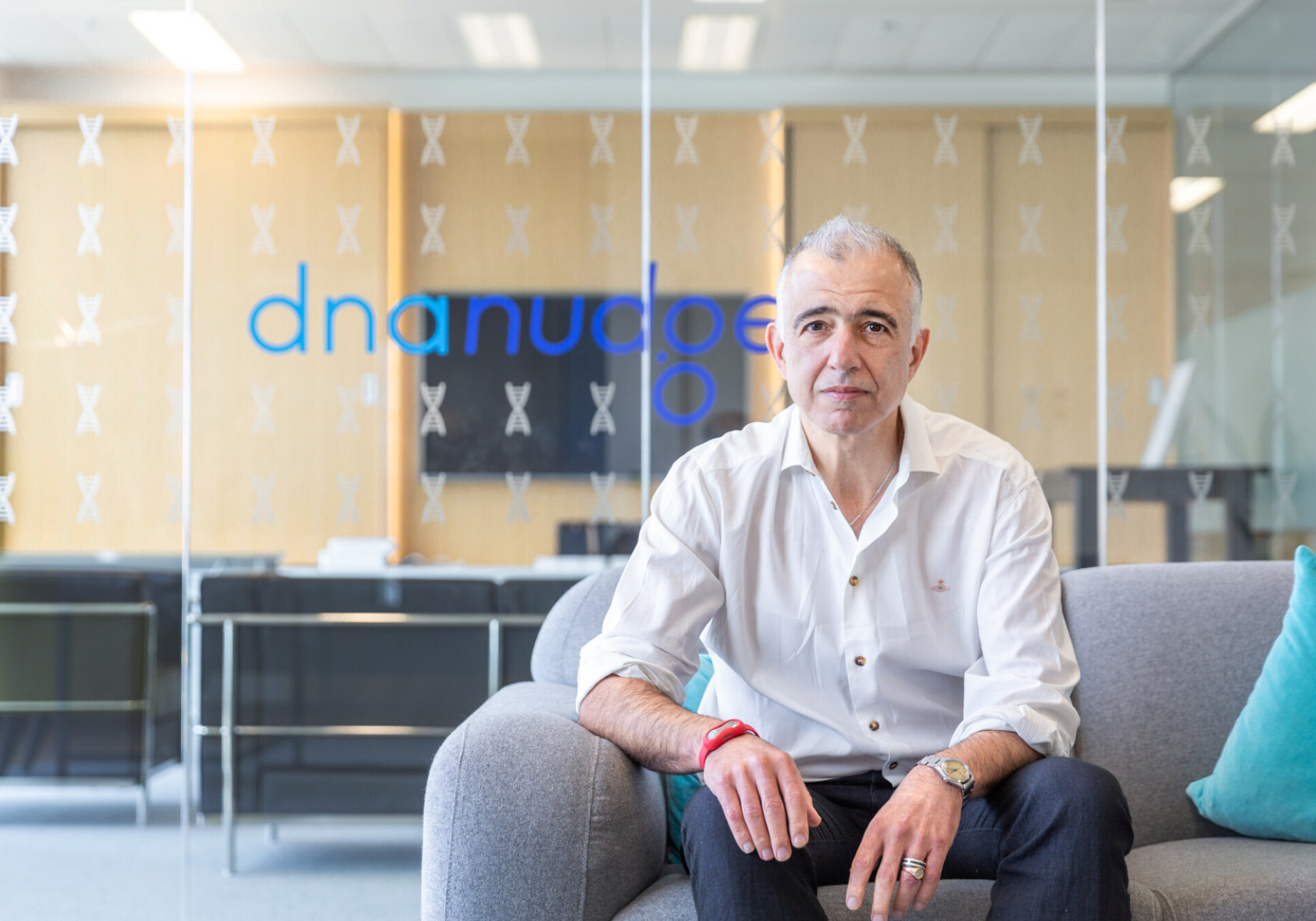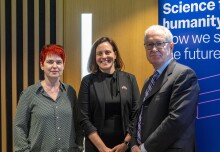
The Ceres team receiving the 2023 MacRobert Award.

An energy technology company with its roots at Imperial has won the UK’s most prestigious award for engineering innovation.
Ceres Power, an energy technology company created over 20 years ago from research carried out at Imperial, has been named the winner of the 2023 MacRobert Award, the longest-running and most prestigious UK prize for engineering innovation. The award was presented to Ceres in recognition of a ground-breaking fuel cell technology that promises to make a major contribution to decarbonising the world at the scale and pace required to save the planet.
“The engineering heroes behind the UK's world-changing innovations deserve to be celebrated. Professor Sir Richard Friend Chair of the MacRobert Award judges
“The engineering heroes behind the UK's world-changing engineering innovations deserve to be celebrated,” said Professor Sir Richard Friend, chair of the MacRobert Award judges. “Ceres’ spectacular work continues the UK’s proud tradition of world-leading engineering innovation and highlights the important contribution the UK can make in tackling the ongoing climate crisis.”
The company was founded in 2000 to develop fuel cell research carried out by Professor Nigel Brandon, now Dean of Imperial’s Faculty of Engineering, and Professors Brian Steele, John Kilner and Alan Atkinson in the Department of Materials.
“I would like to congratulate the whole Ceres team on winning the MacRobert award – it’s a tremendous effort and a strong endorsement of both the technology and the team,” said Professor Brandon. “At Imperial College, we are very proud of everything that Ceres Power has achieved, and we look forward to more successes in the future.”
Ingenuity, commercial success, social benefit
To win the MacRobert Award, innovations must demonstrate outstanding engineering ingenuity, commercial success and tangible social benefit. Ceres’ clean energy technology ticks all of these boxes.
The judging panel admired the design of Ceres’ solid oxide cell, which is based on common, low-cost materials, and built with an innovative deposition technique and a highly differentiated stack technology.
At Imperial we are very proud of everything that Ceres Power has achieved, and we look forward to more successes in the future. Professor Nigel Brandon Dean, Faculty of Engineering
They were also impressed by the reversible nature of the technology. Running in one direction, it can use multiple fuels to generate electricity highly efficiently, when and where it is needed. Run in reverse, it generates green hydrogen at high efficiencies and low cost, an innovation the MacRobert Award judges praised as a huge breakthrough in the clean energy revolution.
On the business front, Ceres’ licensing model has enabled it to establish partnerships with companies such as Bosch, Doosan, and Weichai, to deliver systems and products at the scale and pace needed to decarbonise power generation, transportation, industry, and everyday living.
“It is impressive to see what Ceres Power has achieved with its SteelCell technology,” said Professor Friend. “The innovation promises to be a huge game-changer for hydrogen generation and marks a significant breakthrough in clean energy technology, providing the tools for companies to reach net zero, even in the most hard-to-abate sectors.”
An innovation nation
“The UK is a science and technology powerhouse,” added Dr Caroline Hargrove, Chief Technology Officer at Ceres. “As a nation we have invented some of the world’s best technology that we see all around us today. At Ceres, we believe the same can be true of hydrogen and fuel cell technology.”
Ceres joins an illustrious list of MacRobert Award winners, responsible for innovations such as the CT scanner, the first television graphics system, and the Raspberry Pi mini-computer. It has also been won by major multinationals, such as Jaguar Land Rover, JCB, Arup and IBM.
Past winners from the Imperial community include DnaNudge, which received the 2021 MacRobert Award for its rapid, reliable, lab-free COVID-19 PCR test. The startup was created by biomedical engineer Professor Chris Toumazou and geneticist Dr Maria Karvela, and initially pioneered a service that uses customers’ DNA and lifestyles to help inform their food choices, before pivoting during the COVID crisis.

And in 2007, the MacRobert Award went to Process Systems Enterprise, a company created in 1997 to commercialise the research of Professor Costas Pantelides and colleagues in the Centre for Process Systems Engineering. Now owned by Siemens, the company’s innovative software, gPROMS, helps process industry companies to maximise product quality, minimise production cost and control environmental impact through the use of high-accuracy predictive mathematical models of their processes.
Main photo courtesy of the Royal Academy of Engineering
Article text (excluding photos or graphics) © Imperial College London.
Photos and graphics subject to third party copyright used with permission or © Imperial College London.
Reporter
Ian Mundell
Enterprise



